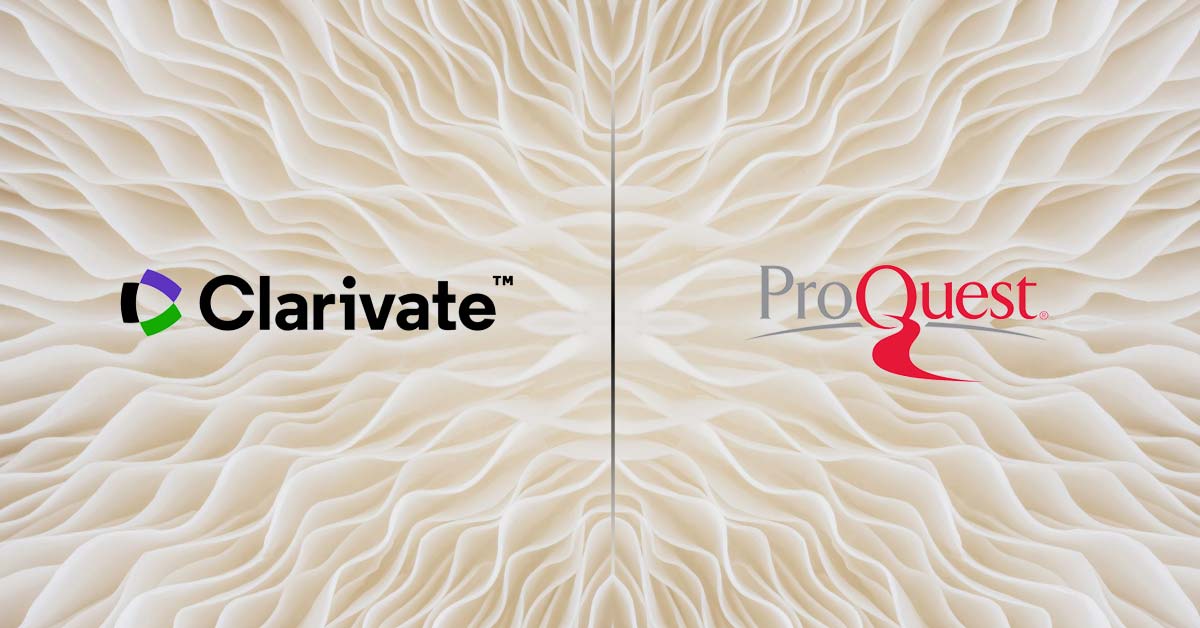Clarivate provides insights and analytics to fast-track the pace of innovation for improving the ways the world creates, protects, and advances innovation. Their subscription-based services targeted on analytics include scientific or academic research, patent compliance standards, etc. a few days ago, on 19 May 2021, the news that Clarivate will acquire ProQuest was the talk of the town. With a net transaction of $5.3 billion, it is going to be the largest transaction in the scholarly information sector. This merger will have an impact on the publishers and libraries, are they both are involved with them. In recent years, ProQuest (academic library vendor) has acquired Ex Libris and Innovative, while Clarivate, as evident from its acquisition-powered growth strategy has acquired CPA Global for its intellectual property business.
Roger C. Schonfeld, analyzed this merger in Scholarly Kitchen and raised some basic questions regarding the operationalization of this acquisition. ProQuest’s is based around the library and related products, it functions mainly to optimize library practices and needs, having a deep reflection on the community it is engaged with. ProQuest is the biggest academic library vendor with 92% of its revenue is reoccurring, and a 100% renewal rate of its top 2500 customers. Whereas, Clarivate, a Web of Science group is absorbed in scholarly publishing and academic science.
The company is facing challenges in the sales of its new products, like Converis, so many believe that its corporate integration will be a challenge and not an easy task. This consolidation is likely to cause a cost cut to approximately $100 million. It could be possible by reducing existing product duplication, as ProQuest did recently by keeping both Innovative and Ex Libris separated. Another way to cut the cost is by consolidating sales operations, as prioritized by both Clarivate and ProQuest. To boost profits, the companies are forecasting revenue growth by cross-selling opportunities, in alignment with other sectors of Clarivate’s businesses. The sales organization by two different approaches would be difficult but is if done properly could be highly rewarding.
The Clarivate-ProQuest landscape will alter the game of library software business for good. Since, the library system is a system for higher education, by merger with Clarivate, ProQuest will be validating the tactics of constructing from Alma to move towards the research office and teaching and other learning events. This transaction will have the potential for an integrated enterprise research platform, where library systems will be a component in a bigger set. Though they have to face many competitors, Digital Science and Elsevier, are two big competitors against them in the provision of tools and services for research.
This merger seems like an effort to increase corporatize landscape, just when the research enterprise has taken a huge role in the university policy.
The tools and mandatory platforms are expected to grow in size and scale. But, the provision of such sophisticated platforms requires huge investments and large capital, and the business models that need those needs will be on the winning side.
Keywords:
Clarivate, ProQuest, Digital Libraries, university strategy, business models, economics, analytics

COMMENTS